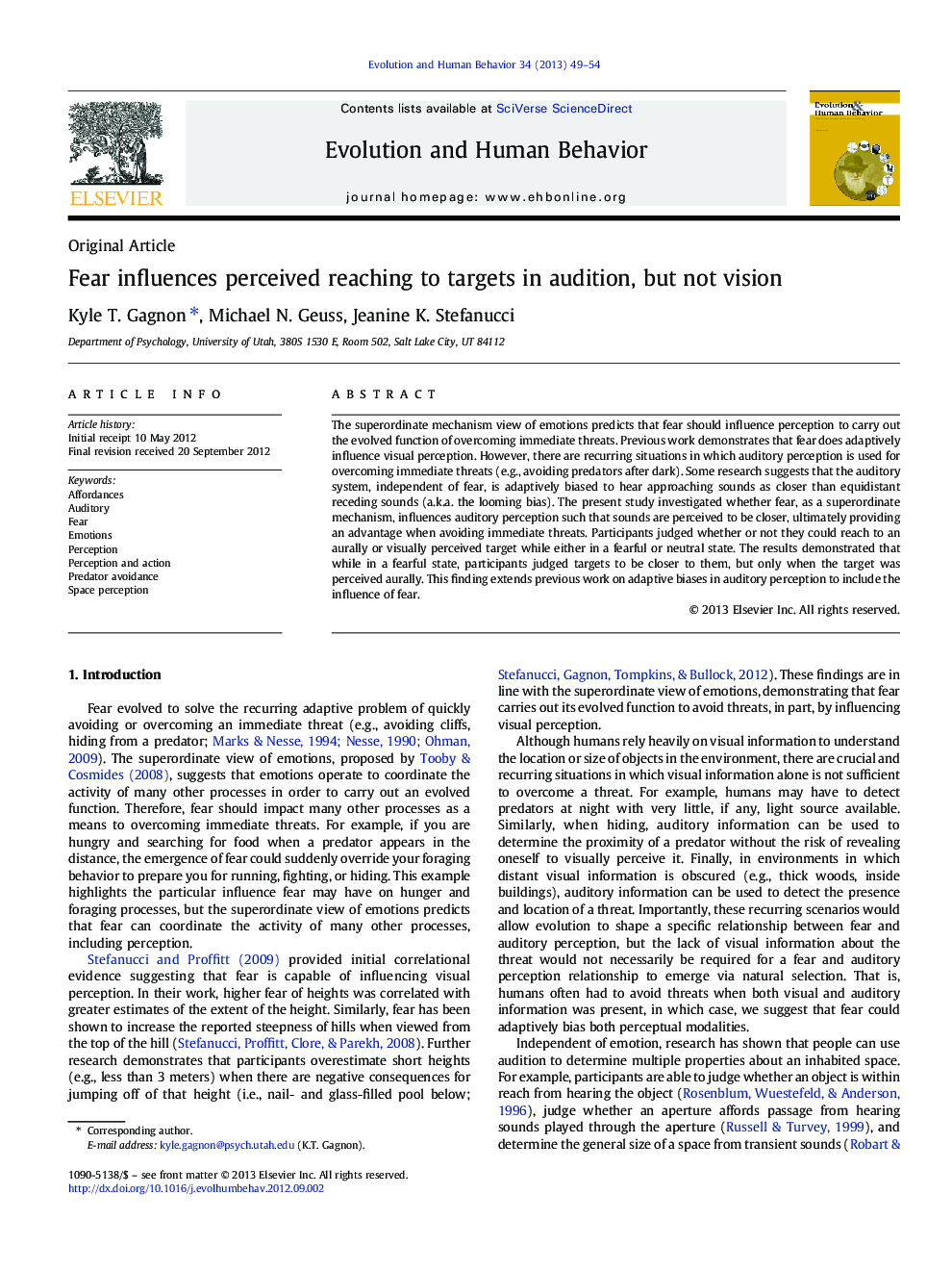| Article ID | Journal | Published Year | Pages | File Type |
|---|---|---|---|---|
| 943355 | Evolution and Human Behavior | 2013 | 6 Pages |
The superordinate mechanism view of emotions predicts that fear should influence perception to carry out the evolved function of overcoming immediate threats. Previous work demonstrates that fear does adaptively influence visual perception. However, there are recurring situations in which auditory perception is used for overcoming immediate threats (e.g., avoiding predators after dark). Some research suggests that the auditory system, independent of fear, is adaptively biased to hear approaching sounds as closer than equidistant receding sounds (a.k.a. the looming bias). The present study investigated whether fear, as a superordinate mechanism, influences auditory perception such that sounds are perceived to be closer, ultimately providing an advantage when avoiding immediate threats. Participants judged whether or not they could reach to an aurally or visually perceived target while either in a fearful or neutral state. The results demonstrated that while in a fearful state, participants judged targets to be closer to them, but only when the target was perceived aurally. This finding extends previous work on adaptive biases in auditory perception to include the influence of fear.
